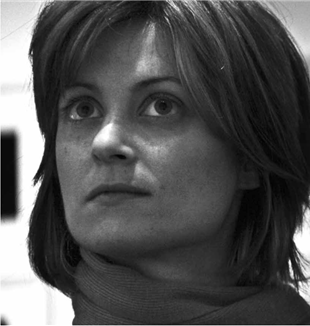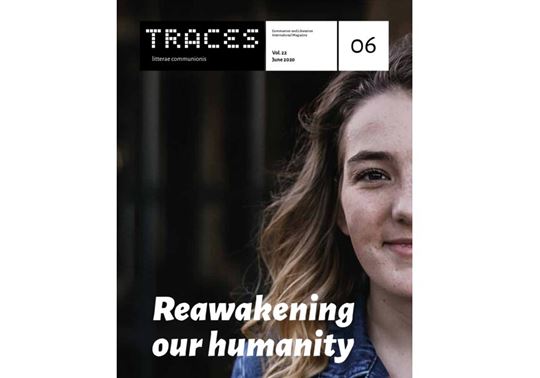
Where are we now?
A deep renewal. The “visceral reality of vocation.” From the June issue of Traces, New York author Paul Mariani describes what he is learning and what is at the center of the reawakening of our humanity.“The book is on point. The reawakening of our humanity! Boom! This is exactly what is happening to me.” Paul Mariani was born in New York in 1940 to Italian parents. He is a professor emeritus at Boston College, where he taught poetry and literature. He is also a literary critic and has written significant biographies of American authors, including William Carlos Williams, Hart Crane (adapted into a movie, The Broken Tower, starring James Franco) and Gerard Manley Hopkins. His latest biography on Wallace Stevens was a finalist for the National Book Award. This year he published his eighth collection of poetry, Ordinary Time.
He is now retired and lives in western Massachusetts, where he watches the news of the coronavirus in America unfolding on TV. Over the years, he has become familiar with the work of Fr. Giussani and has said that “the writings of Fr. Giussani and Fr. Carrón have helped me as a Catholic author.” He received Reawakening Our Humanity and about two hours later responded via email, “I read it and it was truly consoling.”
What was striking to you?
My wife and I live outside of the city, so we are fairly safe. Our son who is a Jesuit lives in New York, in the Bronx, and there the situation is quite different. We are worried about him, but he says that everything is fine. I have a friend who lived in a nursing home for veterans, and he was among the first to die from Covid-19. Things like that show you that the virus can find you anywhere, even at home. We are aware that, at our age, we are among the most vulnerable. When you turn on the TV, you can’t help but hear the reports of cases and deaths. Nevertheless, there are still people who believe–and I don’t know how they can–that this is all a hoax, as if the virus were made up. But it is real! Carrón emphasizes that we must become aware of the impact of reality on us; he also says that reality has always been there, only we were not aware of it. We lived our lives; we watched television; we enjoyed a nice glass of wine. Everything continued on as usual. Then, all of a sudden, something happens and it changes everything. Now we can’t even go to church. I am fortunate enough to have time to reflect. I can focus on what is taking place and what is happening to me.
What is happening to you?
My wife and I have asked ourselves again, “Where are we now? What is the real meaning of our lives?” This is, in my opinion, the “reawakening of our humanity.” And thinking of Christ was inevitable.
In what way?
It is as if He turned around and was looking right at me. The reawakening of my humanity must have a religious source. It is that gaze on me that keeps reappearing.
What have you discovered in this “dizzying time”?
One thing I have understood is that I want to keep writing poetry. I have begun to be haunted by my Italian ancestors, who hail from Compiano, a town outside of Parma. My heart returns there and asks, Who are those ghosts? What will I find if I go there? I continue to reflect on what we call the “philosopher-poet.” Can the two languages–philosophy (recently, my wife and I have been reading a lot of Kierkegaard) and poetry–speak to each other? I think they can. What would I tell my ancestors from Compiano if I could meet them? Honestly, I don’t know what I would say. Certainly, it would be something that goes beyond language. It must, in order for there to be an encounter. I use the image of dance. Of music. It could be a song that is inaudible, but it is real music. Truly real.
That is hard to imagine.
When I read the writings of the mystics, there were times when language fell short; you could not go any further because language is all we have. That experience is frustrating for a writer, but it is real. How do we communicate that reality? I think this is part of what Carrón is trying to do; that is, to speak about that deeper reality that Hegel would call “the ideal,” that coming into contact. Into contact with what? With whom? This is where Christ steps in. St. Peter said, “Lord, to whom shall we go? Only you....” I have taught for years and I have carefully considered language for half a century. As I grow older, the limitations of language become more and more of a reality. Existence is what matters, not so much language or speech. When you look at the starry sky, you understand that there is something infinite. You can get closer, but as you approach it, the more you perceive that there is something beyond. The paradox, that transcendence, coexists with an awareness that that something that is totally other is already here. All that we need to do is to open ourselves up to it. For this reason, I am very attracted to Communion and Liberation. “Communion” is what my heart is drawn to. I speak about this when I think about the dance with the people with whom I would like to dance, to sing.
Yet it is difficult to perform this dance today when we must keep a distance from each other.
Yes, but I hunger for it. I long to be able to hug my grandchildren and children. I am Italian and I need to hug them, for their good and for my own good. When we are able to do so, I will go out and hug everyone on the street. Now that we cannot do this, we understand its meaning more clearly. It is true that people are still dying. There is an atmosphere of death, of being buried, but when we go out again, we will have a renewed meaning of life. Now I have an even greater desire to be with people and to talk, laugh, and break bread with them.
Read the June issue of Traces
For you, is life under these circumstances a “vocation”?
Yes, it is not like at New Year’s when you make resolutions and within a week you have already forgotten them. The sense of vocation, of profound renewal, is visceral. I would like to have that. It is as if I had died and after three days resurrected as Lazarus did. At that point, what would you do? You could only testify about what happened to you. Over the years, I have tried to do precisely this, to witness the faith, to what is good, with an ultimate optimism. It does not matter what happens to us because Christ is always with us. In medieval paintings, Christ is depicted as looking straight at you. It is the crucified Christ, and then the resurrected Christ, who says, “Let’s have breakfast together on the beach of the Sea of Galilee.” For me today, this means to continue to go forward, to share the bread that He gives us and to share who we are. I am almost 80 years old and I do not want to stop doing this. I want to do it as long as my strength allows me. I want to die, as we say here, “with my boots on.”#ReawakeningOurHumanity